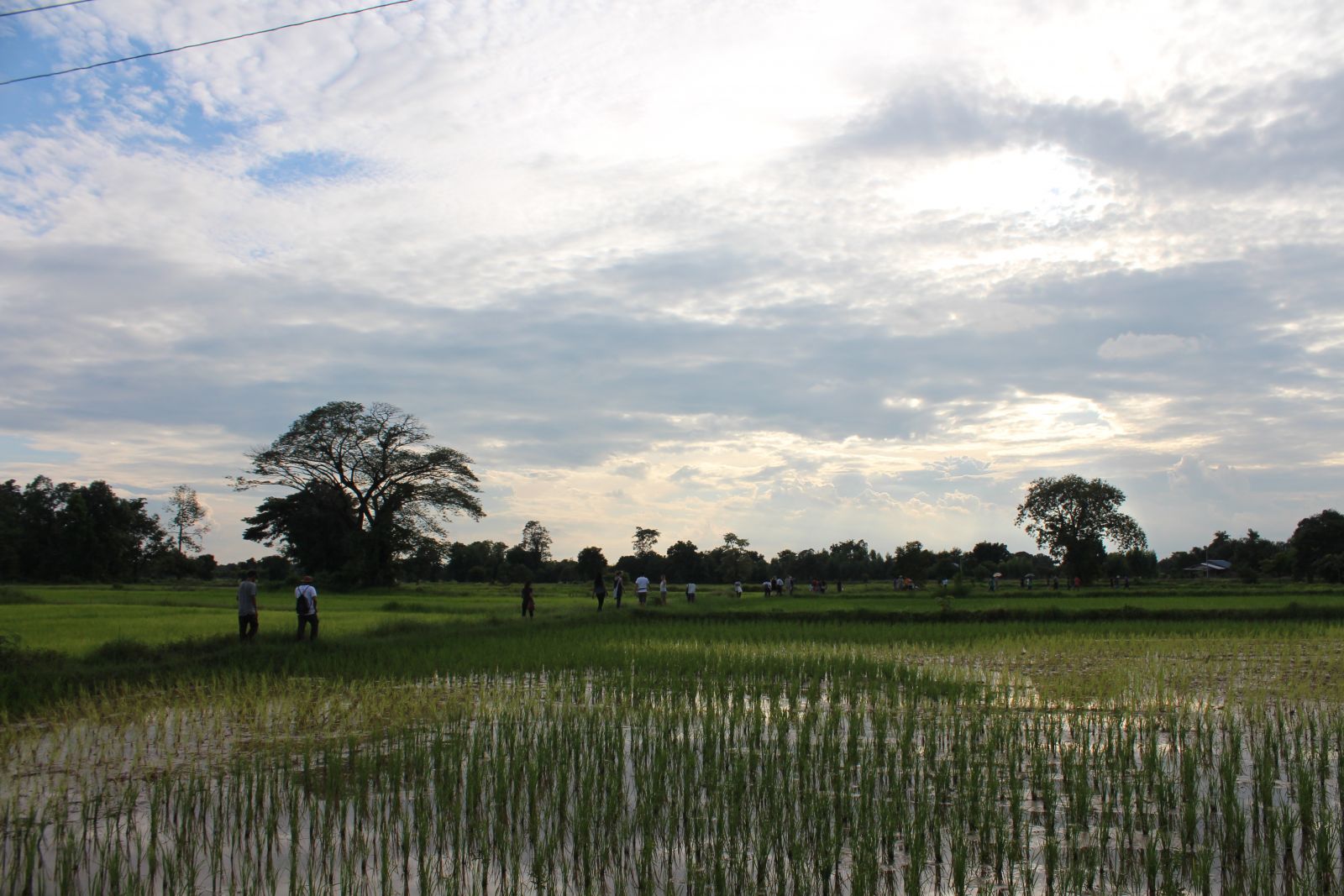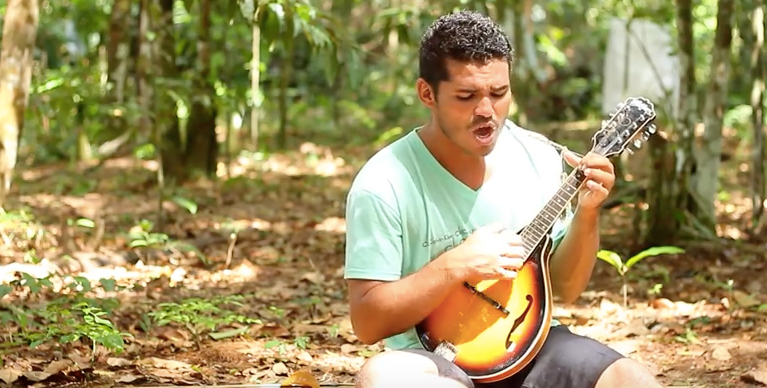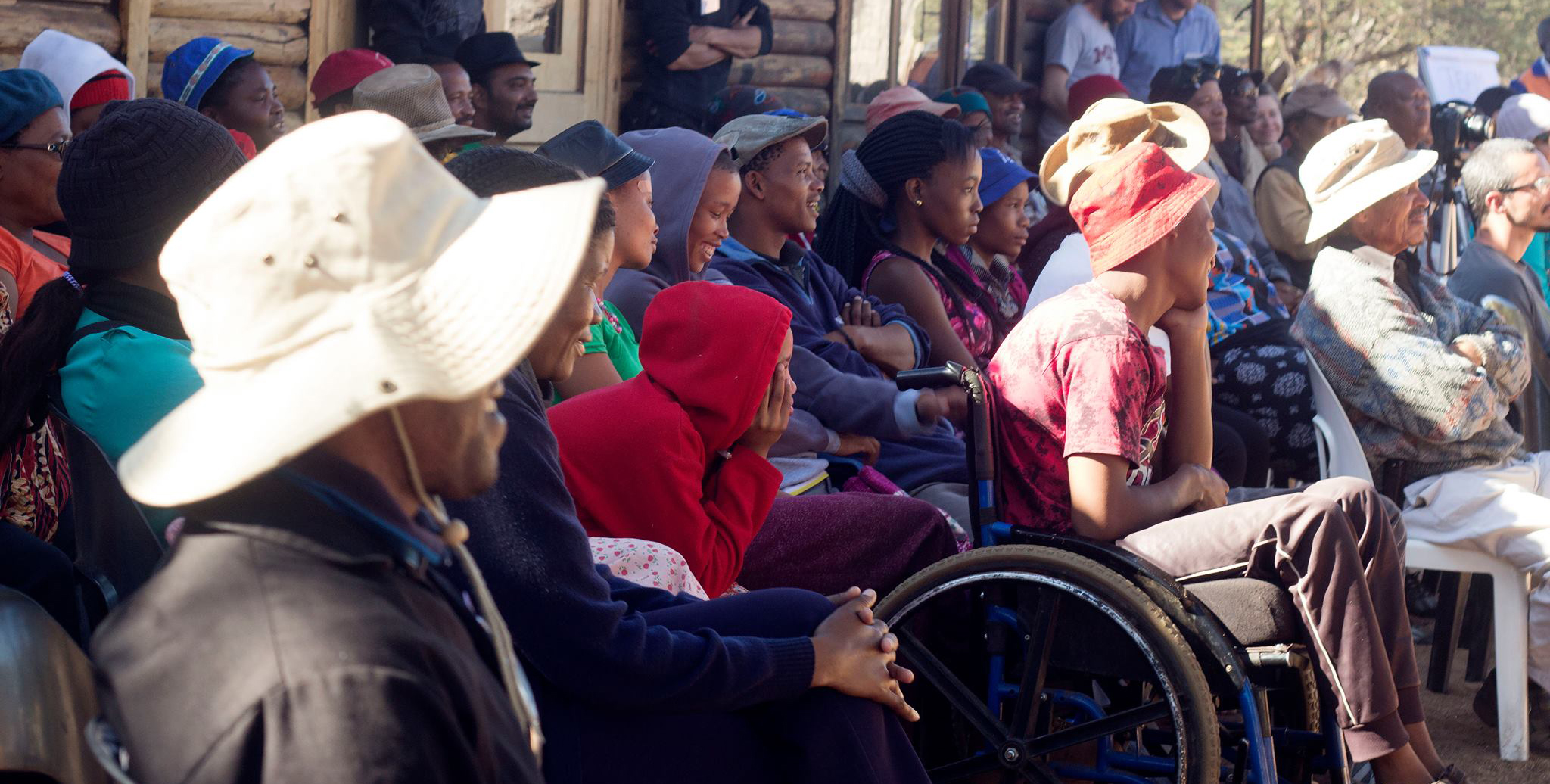Equally Remarkable: Reflections from an Apprenticeship at IDDS Sisaket
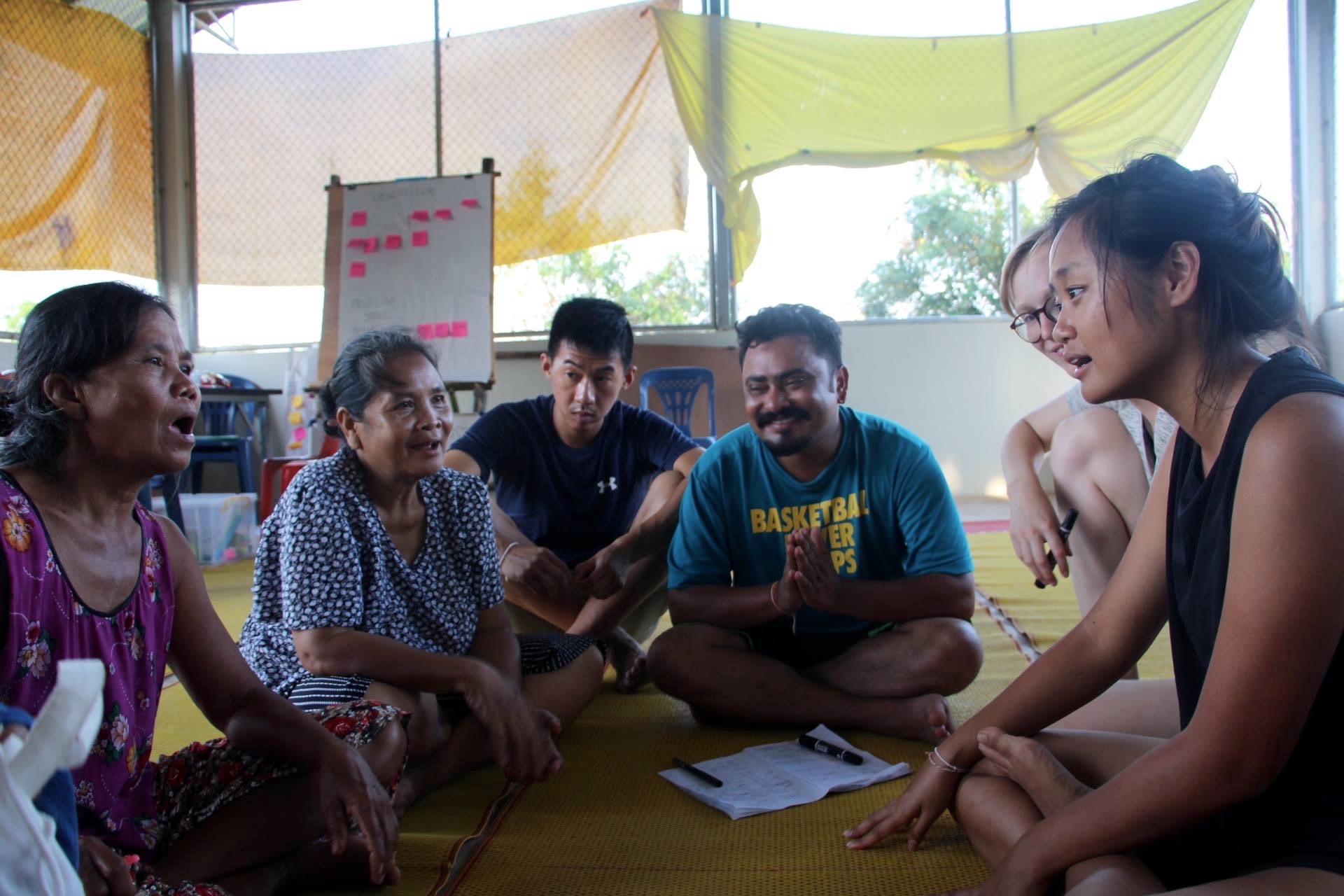
Design facilitators play a key role at International Development Design Summits (IDDS). They guide summit participants through the co-creation process, supporting their team’s progress as well as their physical and mental health.
This summer, the organizers at IDDS Sisaket tried a new model of facilitation: a design duo, consisting of a senior and apprentice design facilitator. As such, this summit was uniquely situated to explore growth through learner-teacher-student relationships. The apprentice design facilitators were current undergraduate or recently graduated students. This apprenticeship therefore represented a rich opportunity to engage students in hands-on learning of design education and community work. The apprentices’ work embodied cross-cultural collaboration; translating languages and working intergenerationally across cultural contexts.
One of the apprentices, Irene Laochaisri, recently graduated from Babson College, where she concentrated on entrepreneurship and design. In addition to her facilitation role, Irene contributed to the preliminary research, problem framing, logistics, and spirit-keeping of IDDS Sisaket. Born and raised in Bangkok, Thailand, Irene grew up at the intersection of two worlds: rural communities circling the outskirts of the city and privileged Thais and expats at the international schools she attended. She is now studying at the Hertie School of Governance in Berlin, Germany, pursuing her Masters in Public Policy this fall.
Before she left for Berlin, I had the chance to sit down with Irene to reflect on her experience with IDDS, including her motivations and learnings.
.jpg)
During your time here, we’ve seen you wear many different hats. In your own words, how would you describe the role(s) you’ve contributed as a team member here at IDDS Sisaket?
Irene Laochaisri: I think one thing I want to emphasize with IDDS Sisaket is its flat structure and what gets done, is what you’re willing to do. You step up where you want to, based on your skills and background. I feel I’ve stepped up in various different ways, but throughout this process, I wonder if I’m the best person to contribute to different tasks.
Trish Abalo: We’ve definitely seen your capabilities across different contexts throughout IDDS.
IL: The most obvious answer is translation, but translation is more than what it starts out as. Imagine you’re the one person out of a group of five or six who is actually able to facilitate conversations from different backgrounds. In user visits, team settings, one-off conversations. It’s tough when people rely entirely on me and other Thai-speaking organizers. I feel we need to constantly take care, because non-Thai organizers are unable to navigate cross-cultural situations and we need to walk them through that. This is in addition to the relationships we’re managing in our project teams. It’s really sensitive work, and add in layers of different cultures, languages, working styles - how do you make it all work? And how do you keep up that energy to have every interaction live up to what that respective interaction is? There are times when you’re really tired and someone in the community is telling a passionate story, and you want to, need to relay that to others, even thuough you are running out of energy from translating all day. How do you ensure you are doing a community member justice and translating the verbal as well as non-verbal components of what they are trying to communicate?
TA: It’s definitely a difficult process, where I hear you revealing the many layers of translation.
IL: Yes, and translation is never translation. Translation is 5,000 different things on top of that. It’s made me reflect on my personality and leadership style: I like to get everybody to come to a point, synthesize, and execute. Because of this, I’ve become a bit of a “participantizer,” where I also cover for the participants in my team. IDDS is complicated. Whoever said this stuff is easy... they don’t get it!
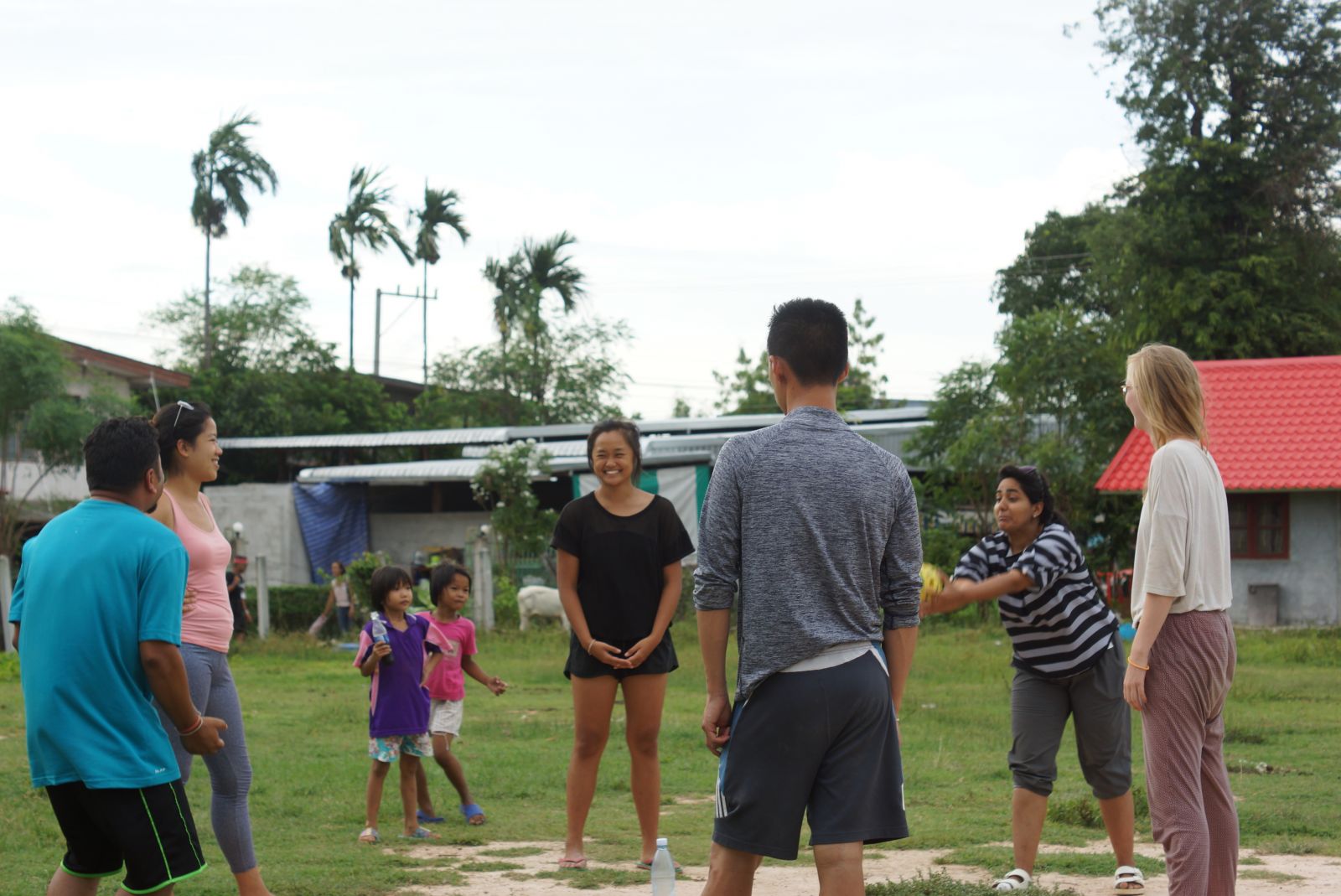
You are from Thailand, and grew up navigating different spaces. You recently graduated from university in the US, and are back here for IDDS, and also moving soon after IDDS Sisaket ends, to pursue a graduate degree in Germany for the next few years. What has it meant to you to be here doing this work, at this point in your life?
IL: One of the reasons I’m doing this is for me to arrive at this answer, eventually. I think I’m not going to realize the full impact of this experience until five or ten years down the line. The immediately obvious outcome is using what I have been given in a way that is useful for the people that I feel so connected to, and that I believe can thrive. It’s fulfilling work, but also really complex. It’s only a starting point, and I constantly overwhelm myself with how much more there is to do. That comes with feeling conflicted about choosing to move to Berlin, over maybe staying here, and really thinking about what sustainability is. It’s also meant trusting the IDDS organizing team that they see IDDS as a catalyst.
TA: That’s a lot to process.
IL: I have been thinking a lot about about this idea of tribes. How IDDS participants and organizers have established ourselves as some kind of tribe here: eating every meal together, working together all day, tucking each other into bed. It is this return to a way of living that is so natural, to what human beings have alwasy done. It’s a way of bonding that I will continue to see how it shapes me, and nurture me, even five to ten years from now. This answer is also super selfish. The reason I’m not answering in terms of what we’re seeing in the community is that impact is going to take time to form, for it to be visible and tangible. And I am skeptical of our own work; I have to be. We have to be very critical of our own work. So I have all the hope in the way that through the approach, putting people over process over product, there will be that impact and outcomes. Until I see it that it actually happens, that’s a big open question that I would love to see the answer to.
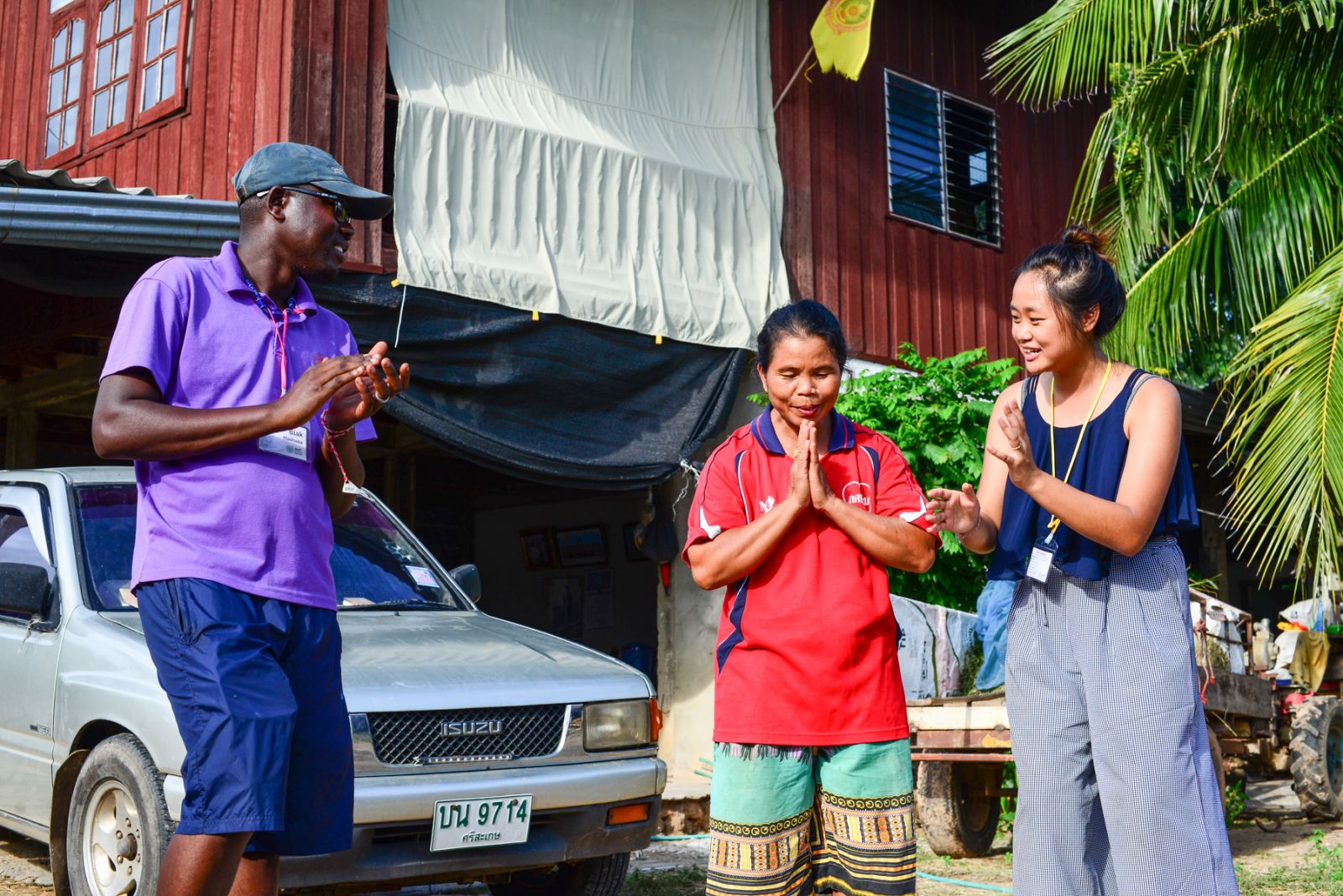
Why did you decide to get involved in IDDS?
IL: When I first started, I didn’t fully realize what the experience was going to be or what my role would be. I jumped on it really quickly, without really knowing. The reason I did that was I trusted the people who reached out to me, that they saw the value of what I could add. And that’s a really empowering feeling at this stage in my career. Having people that I look up to, who give me that opportunity to help make this happen. Generally, seeing the words, the vision on the website, the landing page- that’s all I needed to see. The IDIN logo, connected to the Affordable Design and Entrepreneurship course [I’d taken at Babson College through a partnership with Olin College of Engineering]. The rest was just “Why not?” Seemed like a really good way to being useful.
TA: Useful in what ways?
IL: A lot of my education in design and execution of design has been in the US, and I wanted to make sure that I was using what I had been given there, in a context I have grown up in without truly interrogating. Now that I have the experience living outside Thailand for four years, I wanted to return with a hybrid, insider-outsider perspective. And this was the perfect opportunity to start looking at what that looks like, with a format aligning with the way I see the world, the disciplines I believe in. Whether it’s the right format for what I want to be.
TA: Can you speak more about what you mean by ‘format?’
IL: It’s an approach that sees humans as equal- equally remarkable, as each other. And puts them together in a space where that remarkability can be brought out of each other. It’s celebratory, rather than pitiful or sympathetic, which is a lot of what this [development] work is. To create interest in doing work like this by exploiting stories that make people sad- that’s a huge ethical error that results in sh*tty work. Sympathy is not as powerful as connectedness. To look down on someone and patronize them is not as powerful as seeing them as an equal human being; as powerful as you doing remarkable work, with them.
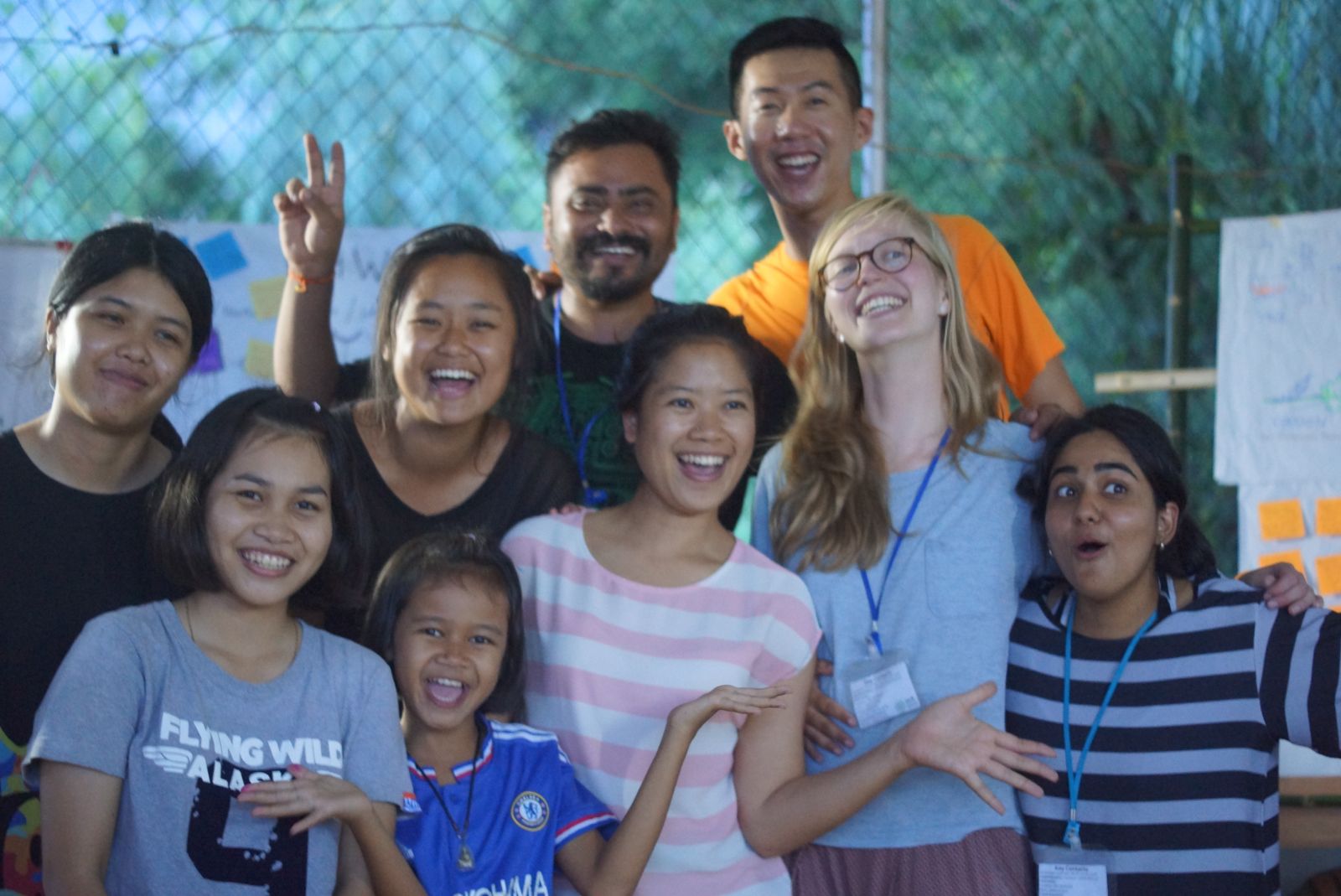
Throughout this work, what are some of the most meaningful experiences you’ve had during your time here? What have you learned from those experiences?
IL: First, I think the tribe experience is so key. Really learning what it means to be a community again and how to take care of each other. This is a family and you do things for your family, regardless of where it’s your job; you just do things. Throughout the summit, I’ve had so many real conversations with people. These conversations are so easily accessible. I’ve taken it for granted that you can sit anyone down, and share a certain level of “Show me your heart, and I’ll show you mine.” Or, “I’m showing you my heart; take it or leave it.” I’ve always found those people wherever I wanted, but I’m realizing just how rare it is to find that in general. And moments, where community members have really taken me in. Taken care of me as family. Tied a string around my wrist and given me blessings. Everyone telling me to call them mom and dad. It’s not hospitality. It’s just a certain level of emotional generosity that is incomparable to anything you’ll find anywhere else in the world.
---
This interview was conducted on August 3, 2017, at IDDS Sisaket on Raitong Organics Farm, in the village of Baan Hang Wao, in Sisaket, Thailand. It has been edited by the interviewer for length, with deep gratitude to Irene.





